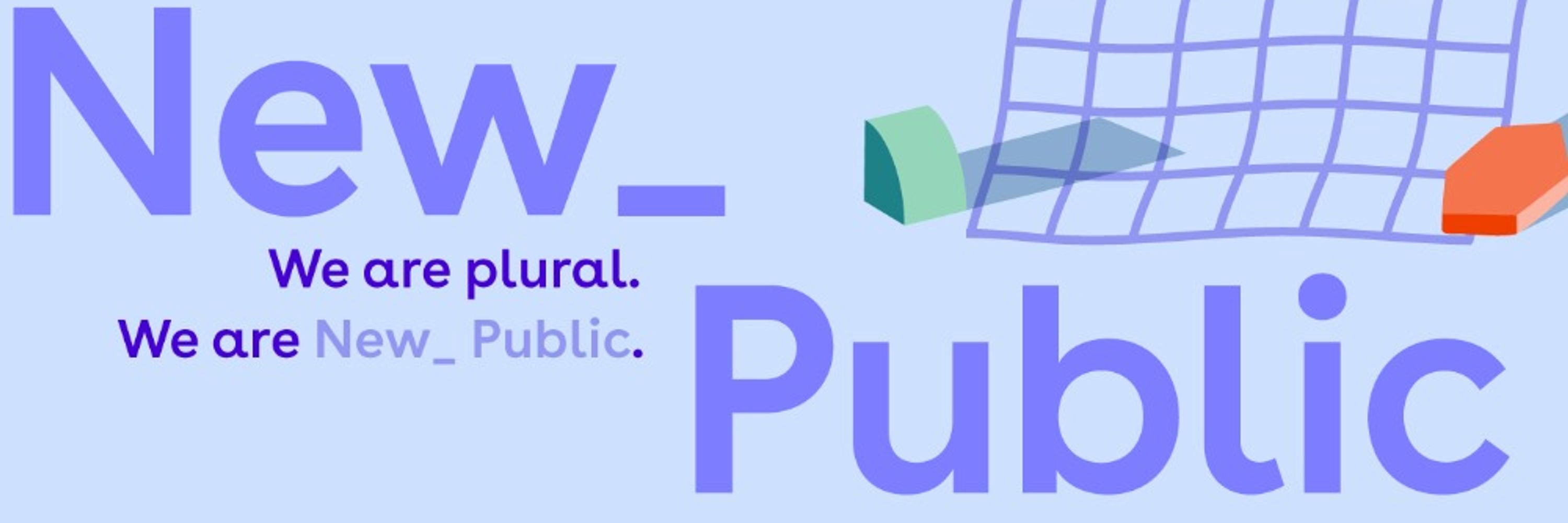

Based on rigorous research and optimized for trust. Built by a nonprofit, for the public.
Find resources, connect with neighbors, celebrate your community.
“Well… good luck to those guys.”
That was 25 years ago. Now, he recognizes Wikipedia’s unbelievable collective generosity and reflects on how it’s adapted to each new era of the internet.

“Well… good luck to those guys.”
That was 25 years ago. Now, he recognizes Wikipedia’s unbelievable collective generosity and reflects on how it’s adapted to each new era of the internet.
Now, open, decentralized protocols like Activity Pub and AT Protocol represent a new avenue for European digital sovereignty.
Now, open, decentralized protocols like Activity Pub and AT Protocol represent a new avenue for European digital sovereignty.
This is why we’re building Roundabout, our local community app.
socialconnectioninamerica.org/2025-report/

This is why we’re building Roundabout, our local community app.
socialconnectioninamerica.org/2025-report/
Submit a position paper for their Un-workshop by Feb. 16th, hosted by @j12t.org and @mmasnick.bsky.social:
fediforum.org/2026-03-grow...

Submit a position paper for their Un-workshop by Feb. 16th, hosted by @j12t.org and @mmasnick.bsky.social:
fediforum.org/2026-03-grow...
Here are four case-studies on European projects that give us hope:
Here are four case-studies on European projects that give us hope:
Here are four case-studies on European projects that give us hope:
With @newpublic.org coming on as a parter, we have dedicated support for Europe travel.
Not to be outdone, @bsky.app has increased their commitment and having some folks from Japan join us.
More detail on this soon!
With @newpublic.org coming on as a parter, we have dedicated support for Europe travel.
Not to be outdone, @bsky.app has increased their commitment and having some folks from Japan join us.
More detail on this soon!

Open, decentralized protocols like ActivityPub (powering Mastodon) and AT Protocol (powering Bluesky) may be the key to a new sovereign social media infrastructure.

That’s why Roundabout, our local community app in closed beta, is organized around stewardship.

That’s why Roundabout, our local community app in closed beta, is organized around stewardship.
Open, decentralized protocols like ActivityPub (powering Mastodon) and AT Protocol (powering Bluesky) may be the key to a new sovereign social media infrastructure.

Join @atprotocol.dev on March 26-29 in Vancouver, BC – early bird tickets are still available!

Join @atprotocol.dev on March 26-29 in Vancouver, BC – early bird tickets are still available!

But here are some thriving spaces and powerful ideas we discovered last year that give us hope for 2026 and beyond✨
🧵👇(1/6)
But here are some thriving spaces and powerful ideas we discovered last year that give us hope for 2026 and beyond✨
🧵👇(1/6)
Blaine will present on Roundabout, our new local community app! Folks from @awana.digital and @dod.ngo will also present.
Blaine will present on Roundabout, our new local community app! Folks from @awana.digital and @dod.ngo will also present.
Open, decentralized protocols like ActivityPub (powering Mastodon) and AT Protocol (powering Bluesky) may be the key to a new sovereign social media infrastructure.

Open, decentralized protocols like ActivityPub (powering Mastodon) and AT Protocol (powering Bluesky) may be the key to a new sovereign social media infrastructure.
Celebrate the collaborative internet experiment that shouldn’t have worked (but somehow did) through this interactive look at Wikipedia’s journey.
Celebrate the collaborative internet experiment that shouldn’t have worked (but somehow did) through this interactive look at Wikipedia’s journey.
Join us next week, Wed Jan 28 10 am PT / 1pm ET / 19 CET
Register here >>> www.eventbrite.com/e/dweb-virtu...

Join us next week, Wed Jan 28 10 am PT / 1pm ET / 19 CET
Register here >>> www.eventbrite.com/e/dweb-virtu...
These are hand-coded, independent websites, outside the walled gardens created by tech giants.
“It’s a canvas for boundless creativity and really you can be yourself.”

“It’s not an easy task to reject services that have become so ubiquitous and are made to be easy to use.”

“It’s not an easy task to reject services that have become so ubiquitous and are made to be easy to use.”
In 2016, Instagram switched their default feed from purely reverse chronological feed to algorithmically-sorted. In retrospect, this marks the beginning of a shift towards a passive, spoon-fed internet.
Design matters for connection.
In 2016, Instagram switched their default feed from purely reverse chronological feed to algorithmically-sorted. In retrospect, this marks the beginning of a shift towards a passive, spoon-fed internet.
Design matters for connection.
These are hand-coded, independent websites, outside the walled gardens created by tech giants.
“It’s a canvas for boundless creativity and really you can be yourself.”

These are hand-coded, independent websites, outside the walled gardens created by tech giants.
“It’s a canvas for boundless creativity and really you can be yourself.”
@benwhitelaw.bsky.social l says, “I believe in the comments, and I think they have a future.”

@benwhitelaw.bsky.social l says, “I believe in the comments, and I think they have a future.”



